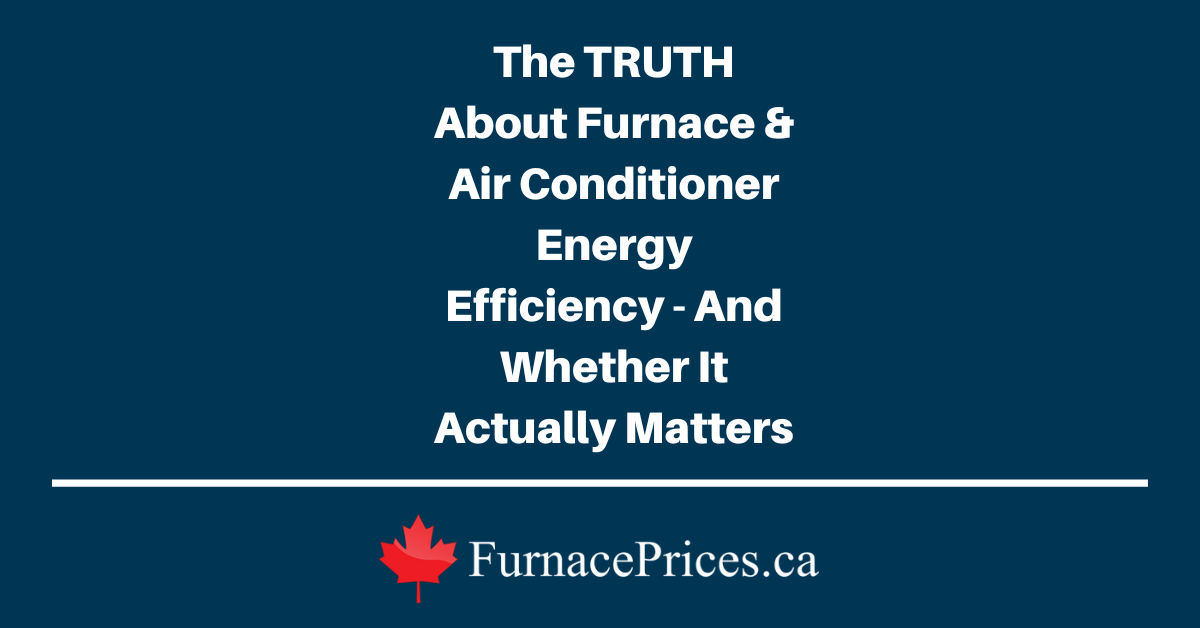How to determine the most reliable heating & cooling system. Plus how long does the average furnace or air conditioner last, and what are the most important factors in furnace & A/C reliability? Find out below!
What is the average lifespan of a furnace or central air conditioner?
On average, a forced-air furnace or a central air conditioning system will last between 10 and 20+ years, with 15 years being a typical lifespan. The biggest thing to consider is that, similar to an old used car, at some point the cost and hassle of constant repairs and servicing will start to outweigh the cost of simply replacing the unit with a new one.
For our latest rankings of the best furnaces and air conditioners, see:
>> The Best Furnace Brands & Models
>> The Best Air Conditioners for Canadians
There are many factors that can affect your heating & cooling system’s lifespan, including:
- Whether the HVAC system was correctly sized to match your home. Over-sized or undersized units will suffer additional strain either from being overworked or constantly cycling on and off.
- Quality workmanship on the installation. Installing a furnace or A/C is not like plugging in a new microwave. There is a significant amount of skilled labour involved, which highlights the importance of choosing an experienced and reliable HVAC contractor not just the cheapest price you can find. The lower the price you pay, the more likely you are to get a less-experienced or hastily done job, which can significantly impact the long-term reliability of your system.
- Good maintenance. Like any mechanical system, it helps to have your furnace and air conditioner regularly inspected and cleaned, ideally at the start of the season (fall and spring). In fact, many extended warranties require regular maintenance to qualify for the full coverage.
- Climate. Naturally, if you live in more extreme climates, your furnace and A/C are going to be worked harder, leading to more wear and a somewhat shorter lifespan. This is normal and unavoidable. If you drive to work every day, a 5 KM commute vs a 50 KM commute is obviously going to impact how long your vehicle will likely last. Harsher winters may also subject the outdoor unit of your A/C to slightly more wear.
- Usage. This is somewhat related to the last point, but your own personal preferences and needs will also impact how much wear your system is subjected to. This likely isn’t hugely significant factor in the grand scheme of things, but it’s worth mentioning.
Get Quotes
How soon are you looking to buy?*



Which Furnace Brand or A/C is the Most Reliable?
Apart from price, the other top concern consumers typically have when buying a new furnace or air conditioner, is which brand and model is the most reliable?
Naturally, when spending thousands of dollars on an appliance you will depend on to heat your home and keep you and your family warm, you want a system you can count on.
Unfortunately, determining the most reliable furnace brand or A/C is not quite so simple, as many factors can affect reliability.
As mentioned, proper sizing, installation, and quality workmanship are bigger factors than most people realize (more on this below). Proper maintenance can be a factor. Usage can matter as well.
It is true that sometimes batches of units or just a product line in general can be more cheaply made or suffer from defects; this is true of any large-scale manufactured product (cars, cell phones, etc).
But people don’t trade-in and resell furnaces and air conditioners the way they do with automobiles, and insurance companies don’t directly track reliability like with vehicles, so there just isn’t the same level of scrutiny and objective data to analyse.
This lack of objective data on furnace and A/C reliability, especially given the large variance in total sales volume between brands, is further confounded by the fact that these units are being installed by different contractors and technicians.
One thing to note here is that larger manufacturers may have more customers that encounter issues overall due to the sheer volume of units they produce. The actual ratio may not be any higher, but it may give the impression there are more unhappy customers just because they ship hundreds of thousands or millions of units.
You may be tempted to turn to consumer reviews, but these have their own flaws which you can read about here.
So, how do you determine what the most reliable furnace brand unit is?
Our money is on the warranty.
We find warranty coverage to be one of the best indicators, since this both implies a company’s confidence in their own products, while also providing a measure of assurance for consumers should anything go wrong.
Sure, this isn’t a perfect guarantee that you’ll never have any problems, but it offers the best protection in case you do. This is especially true when purchased from a reliable local distributor that offers a solid guarantee on labour & installation as well.
That’s why we’ve devised our own proprietary rating to compare furnace & A/C warranty coverage so you can make a decision based on the available facts rather than some vague and slanted online feedback, some editor’s personal opinion, or some paid advertisement.
Why installation matters
People often like to focus on the unit itself or the brand when it comes to finding a reliable furnace or air conditioner. But there are two reasons why the installation can be just as important (if not more so) to the long term reliability of your heating & cooling system.
- First, the quality of the workmanship matters, because furnaces and central air conditioners are not isolated, standalone systems. A heating and cooling system is really an interdependent set of components that must be properly integrated with each other, and with your home’s overall ventilation framework, plumbing and drainage for condensation, fuel source (usually natural gas feed, or propane tank) and electrical setup. Everything from the quality of the pipe seals and wiring connections, to matching adequately-sized and compatible secondary components, matters…
- And while on the topic of secondary components, both the quality and proper configuration of these is also important. Take the evaporator coil which connects to your new central air conditioner but sits indoors, above the furnace. You could have a top of the line unit, but if it’s paired with a sub-par coil, you likely won’t get the performance and reliability you’d expect. Or if the coil is not properly-sized and suited to your primary (outdoor) unit, it may also lower performance, shorten the lifespan, void the warranty, or lead to other problems like causing the coil to freeze up.
So although modern furnaces and A/Cs are generally durable and well-tested, like any sophisticated electrical/mechanical system, the setup and installation matters.
Good HVAC contractors with experienced technicians may cost a bit more, but they’re not likely to cut corners and compromise on workmanship and quality components.
Find out more about our Certification Process

Simon Bernath
Founder of FurnacePrices.ca
During his years of working closely with HVAC professionals, Simon has gotten a unique inside look at how the industry operates, allowing him to share this unique perspective to help Canadians make informed buying decisions when replacing their heating & cooling systems.
Get Quotes
How soon are you looking to buy?*










